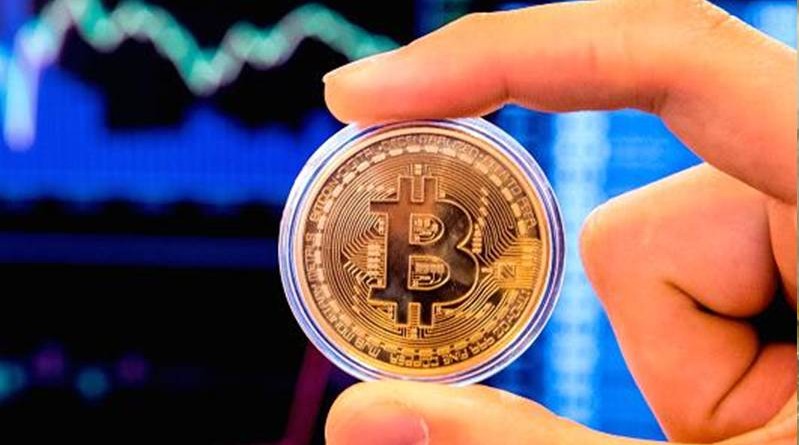Goldman Sachs to Open a Bitcoin Trading Operation at a Wall Street Bank
SAN FRANCISCO — Most big banks have tried to stay far away from the scandal-tainted virtual currency Bitcoin.
But Goldman Sachs, perhaps the most storied name in finance, is bucking the risks and moving ahead with plans to set up what appears to be the first Bitcoin trading operation at a Wall Street bank.
In a step that is likely to lend legitimacy to virtual currencies — and create new concerns for Goldman — the bank is about to begin using its own money to trade with clients in a variety of contracts linked to the price of Bitcoin.
While Goldman will not initially be buying and selling actual Bitcoins, a team at the bank is looking at going in that direction if it can get regulatory approval and figure out how to deal with the additional risks associated with holding the virtual currency.
Rana Yared, one of the Goldman executives overseeing the creation of the trading operation, said the bank was clear-eyed about what it was getting itself into.
“I would not describe myself as a true believer who wakes up thinking Bitcoin will take over the world,” Ms. Yared said. “For almost every person involved, there has been personal skepticism brought to the table.”
Still, the suggestion that Goldman Sachs, among the most vaunted banks on Wall Street and a frequent target for criticism, would even consider trading Bitcoin would have been viewed as preposterous a few years ago, when Bitcoin was primarily known as a way to buy drugs online.
Bitcoin was created in 2009 by an anonymous figure going by the name Satoshi Nakamoto, who talked about replacing Wall Street banks — not giving them a new revenue line.
Over the last two years, however, a growing number of hedge funds and other large investors around the world have expressed an interest in virtual currencies. Tech companies like Square have begun offering Bitcoin services to their customers, and the commodity exchanges in Chicago started allowing customers to trade Bitcoin futures contracts in December.
But until now, regulated financial institutions have steered clear of Bitcoin, with some going so far as to shut down the accounts of customers who traded Bitcoin. Jamie Dimon, the chief executive of JPMorgan Chase, famously called it a fraud, and many other bank chief executives have said Bitcoin is nothing more than a speculative bubble.
Ms. Yared said Goldman had concluded that Bitcoin is not a fraud and does not have the characteristics of a currency. But a number of clients wanted to hold it as a valuable commodity, similar to gold, given the limited quantity of Bitcoin that can ever be “mined” in a complex, virtual system.
“It resonates with us when a client says, ‘I want to hold Bitcoin or Bitcoin futures because I think it is an alternate store of value,'” she said.
Ms. Yared said the bank had received inquiries from hedge funds, as well as endowments and foundations that received virtual currency donations from newly minted Bitcoin millionaires and didn’t know how to handle them. The ultimate decision to begin trading Bitcoin contracts went through Goldman’s board of directors.
The step comes with plenty of uncertainties. Bitcoin prices are primarily set on unregulated exchanges in other countries where there are few measures in place to prevent market manipulation.
Since the beginning of the year, the price of Bitcoin has plunged — and recovered significantly — as traders have faced uncertainty about how regulators will deal with virtual currencies.
“It is not a new risk that we don’t understand,” Ms. Yared said. “It is just a heightened risk that we need to be extra aware of here.”
Goldman has already been doing more than most banks in the area, clearing trades for customers who want to buy and sell Bitcoin futures on the Chicago Mercantile Exchange and the Chicago Board Options Exchange.
In the next few weeks — the exact start date has not been set — Goldman will begin using its own money to trade Bitcoin futures contracts on behalf of clients. It will also create its own, more flexible version of a future, known as a non-deliverable forward, which it will offer to clients.
The bank’s first “digital asset” trader, Justin Schmidt, joined Goldman two weeks ago to handle the day-to-day operations, a hiring that was first reported by Tearsheet. In his last job, Mr. Schmidt, 38, was an electronic trader at the hedge fund Seven Eight Capital. In 2017, he left that job to trade virtual currencies on his own.
He will initially be placed on Goldman’s foreign currency desk because Bitcoin trading has the most similarity to movements in emerging market currencies, Ms. Yared said.
Mr. Schmidt is looking at trading actual Bitcoin — or physical Bitcoin, as it is somewhat ironically called — if the bank can secure regulatory approval from the Federal Reserve and New York authorities.
The firm also has to find a way to confidently hold Bitcoin for customers without its being stolen by hackers, as has happened to many Bitcoin exchanges. Mr. Schmidt and Ms. Yared said the current options for holding Bitcoin for clients did not yet meet Wall Street standards.
Goldman is known for pushing the envelope in the trading of complicated products. The firm faced significant criticism after the financial crisis for its profitable trading of so-called synthetic derivatives tied to the subprime mortgage markets.
Since the crisis, Goldman has made a big push to position itself as the most technologically sophisticated firm on Wall Street. Among other things, it has started an online lending service, known as Marcus, that has brought the firm into contact with retail customers for the first time. The virtual currency trading, though, will be available only to big institutional investors.
Mr. Schmidt said Goldman’s sophistication was a big part of the reason he was open to the job, despite many other opportunities in the virtual currency world.
“In terms of having a trusted institutional player, it has been something I have been looking for in my own crypto trading — but it didn’t exist,” he said.
Source: Nathaniel Popper, cnbc




